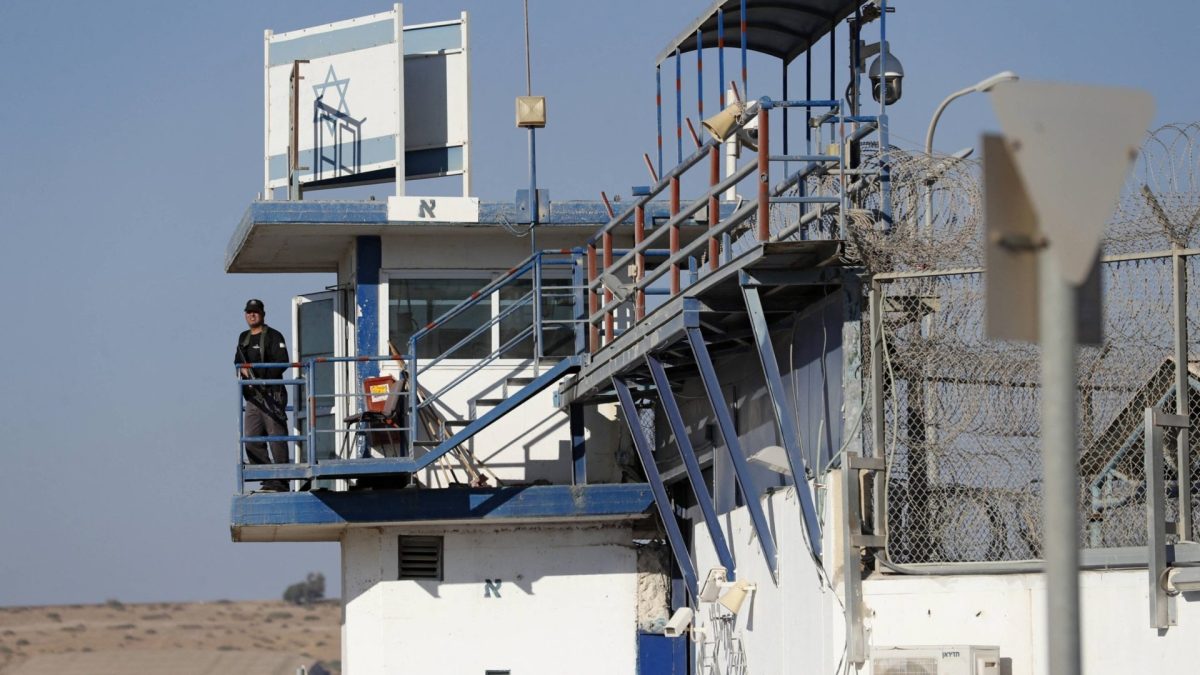Ben Gvir’s decision was first reported by the Israeli daily Yedioth Ahronoth, and the minister confirmed the directive in a tweet. The newspaper said the country’s security agencies were not consulted before the directive was issued.
Later, however, the office of Prime Minister Benjamin Netanyahu came out against the media reports, calling them “fake news”.
“No decision has yet been made,” the office announced in a statement, adding that a final decision will be made next week.
If implemented, the directive would limit family visits for Palestinian prisoners from once per month to once every two months, starting on Sunday.
The move is the latest in a series of punitive measures taken against detainees and has sparked an immediate backlash among Palestinian rights groups, Israel’s internal security service the Shin Bet, and the Israeli military.
Qaddura Fares, chairman of the Palestinian Prisoners and Ex-Prisoners’ Affairs Commission, issued a statement condemning the decision as a “racist and retaliatory approach aimed at harming the prisoners and their families”.
“This decision infringes upon the basic rights of Palestinian prisoners, in clear violation of both Israeli laws and international legal standards,” said the statement.
Fares added that the move would end up inflaming tensions not only in Israeli prisons but also in the occupied West Bank, where the status and treatment of Palestinian prisoners is a particularly sensitive matter.
“[Israel’s] continued targeting of [our] prisoners will be the focal point of the next confrontation with the Israeli occupation, involving all Palestinian factions, forces, and institutions rallying behind the cause of the prisoners,” he stressed.
In its report, Yedioth Ahronoth said the country’s security bodies were not consulted before the directive was issued.
Sources within the Israeli military and the intelligence services, speaking to the paper, warned that the security implications of the move had not been considered and that the decision was “irresponsible”.
The commissioner of the Israel Prison Service, Katy Perry, also objected to Ben Gvir’s decision, warning that it could increase tensions within prisons.
Ben Gvir went on to attack Perry and the Shin Bet for being soft and not showing enough “determination and backbone in front of the prisoners”.
In response to Ben Gvir’s announcement, Palestinian prisoners announced that they would begin a hunger strike, starting on 14 September.
The decision is expected to impact at least 1,600 prisoners out of 5,000 who can receive visits.
Perry also warned that a drawn-out hunger strike by Palestinian prisoners would result in additional burdens on already overstretched hospitals across the country, pushing them to breaking point.
The latest move by Ben Gvir follows another arbitrary decision earlier this week, when he rushed a law through the Israeli parliament that would effectively ban prisoners from being released several weeks early if they had been sentenced for minor security offences.
Shin Bet chief Ronen Bar warned that the decision would likely result in overcrowding in prisons, especially at a time when Israeli forces are conducting near-nightly raids in the occupied Palestinian territories.
Officials in the Israeli prison system have described the situation in the country’s jails as “severe, a national crisis” and “really a catastrophe”, in part due to the ballooning Palestinian prison population.
Following the formation of a coalition – the most right-wing in Israel’s history – by Netanyahu in December last year, Ben Gvir wasted no time delivering on his plans to create harsher conditions for Palestinian prisoners in Israeli jails.
In January, the Israeli government embarked on a policy of moving dozens of Palestinians to Nafha prison, widely considered to be one of the most notorious in the country.
Over the past year, Ben Gvir has adopted a policy of making the lives of Palestinian prisoners incrementally more difficult.
The move to transfer detainees to a harsher prison was indicative of collective punishment.
When prisoners are transferred, their environment and social circles change, and their families might have to wait months to find out where they have been moved to.
In February, Israel’s national security minister ordered the closure of Palestinian prisoner-run bakeries in jails.
Ben Gvir’s office said in a statement at the time that the move was aimed at denying “benefits and indulgences to terrorists” in Israel, benefits it said were denied to regular prisoners.
Later that month, the Israeli parliament passed the first stage of a bill that would stop the funding of non-essential medical treatment for Palestinians. It is unclear what those who drafted the bill deem as non-essential medical treatment.
Zaher Birawi, chairman of the civil society organisation Europal Forum, told Middle East Eye at the time that the legislation is aimed at “slowly killing” Palestinian prisoners.
Such policies have been implemented against Palestinian prisoners for decades, Birawi said, but now “they are taking on legitimacy through the Knesset”.
